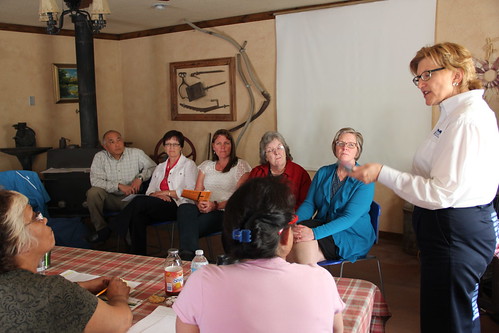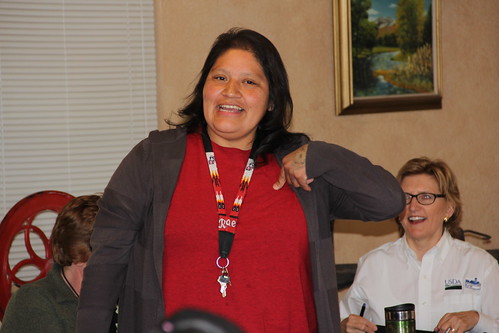
Today in Nevada more than one in four children (28 percent) live in households that cannot reliably provide nutritious meals every day. This dubious distinction makes it the state with the nation’s fourth highest rate of child hunger. And for children living on Indian reservations, the incidence of hunger may be even higher.
What does food insecurity look like on Nevada reservations? With few places to shop, reservation residents have very limited access to fresh produce. Food insecurity not only equates to a lack of nutritious foods available, but also means families must drive great distances to a grocery store. To cope, families choose more canned and frozen foods that will last until the next weekly or monthly shopping trip, which often means less consumption of fresh fruits and vegetables.
To address these food challenges in rural Nevada, Beyond the Hub was established to address nutrition and health issues on nine American Indian reservations. The education pilot, based on the University of Nevada Cooperative Extension in 2012, aligns with USDA’s StrikeForce Initiative in the state, which focuses on capacity building for Native American tribes. The USDA Rural Development and the USDA Food and Nutrition Service collaborated to offer training to tribes on the Summer Food Service Program (SFSP) and the Child and Adult Care Food Program (CACFP). The training took place in Fallon, Nev., this past spring and included attendees from Walker Paiute Tribe, Pyramid Lake Tribe, Fallon Paiute Tribe and the Reno-Sparks Indian Colony.
Nevada Tribal partners participating in summer meals programs, (the Reno Sparks Indian Colony and Walker River Paiute Tribe) along with the Food Bank of Northern Nevada, shared experiences and important details with their peers. It’s probably no surprise that the discussions generated a great deal of enthusiasm about programs that address food insecurity for children living both on and off Nevada reservations.
To find a summer feeding site in your area, please visit http://www.whyhunger.org/findfood or call the National Hunger Hotline (1-866-348-6479).



